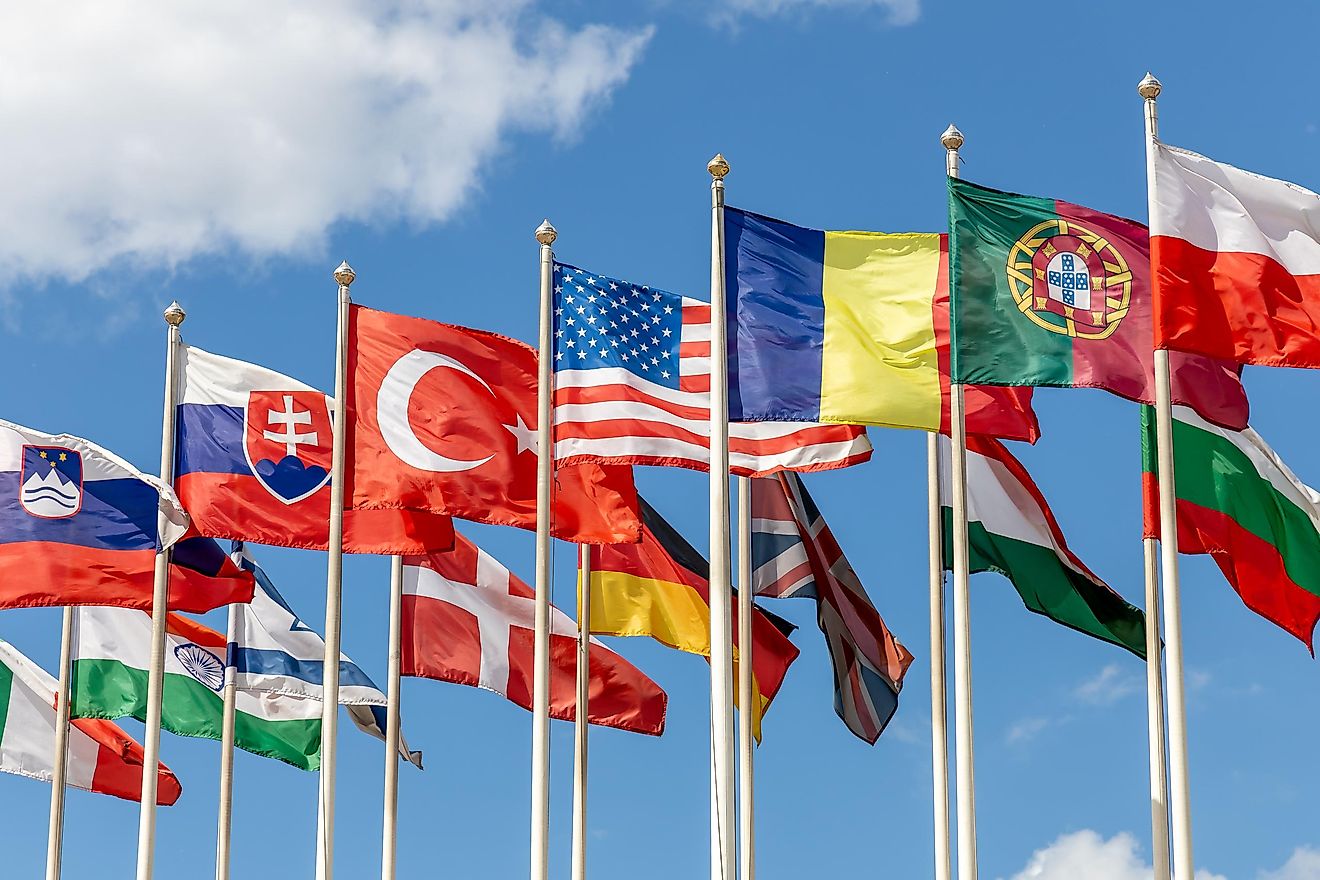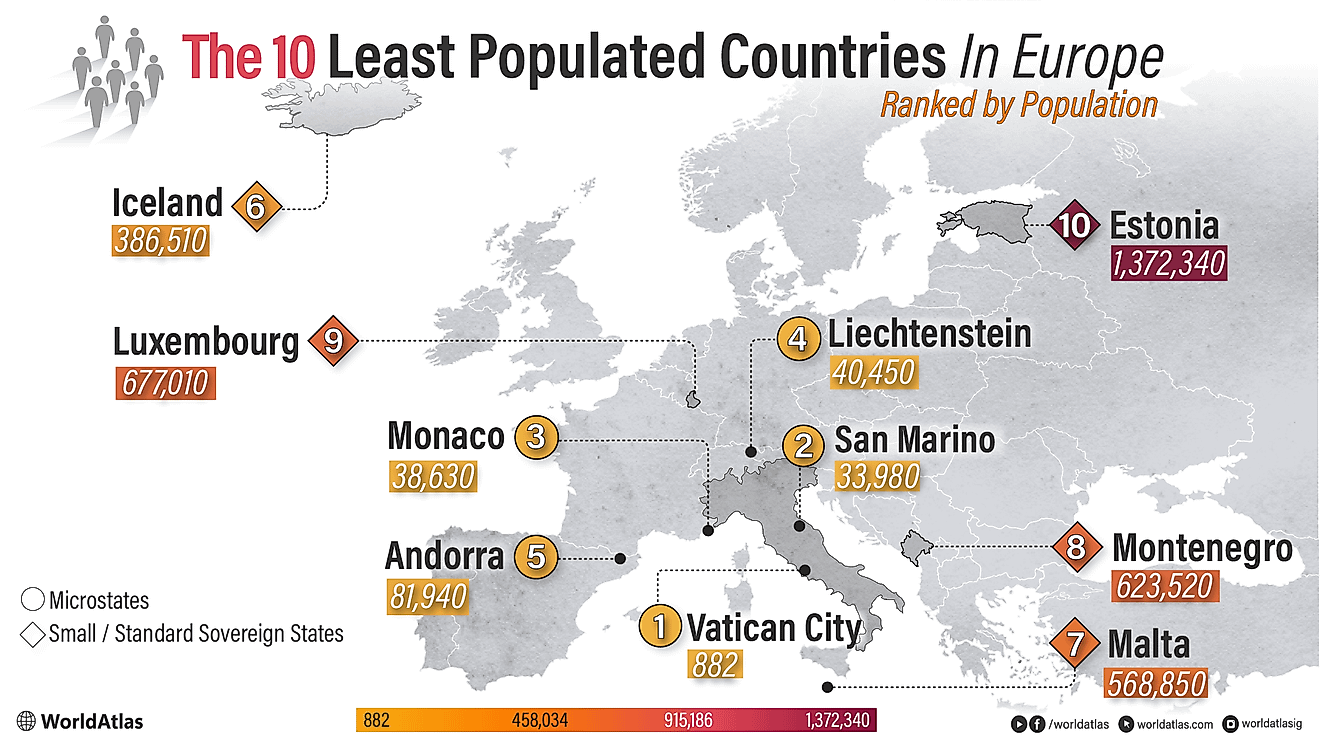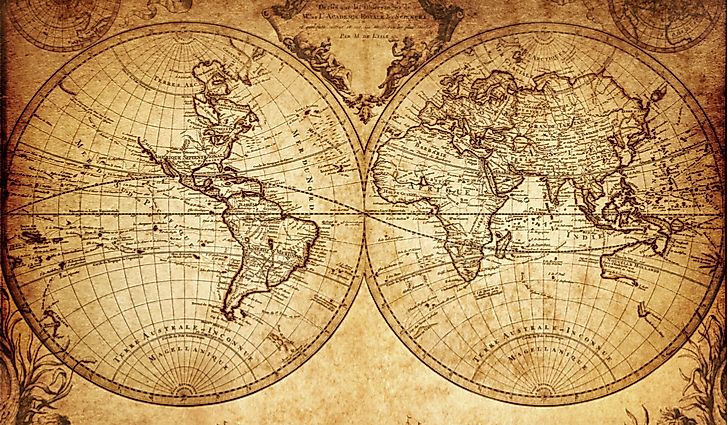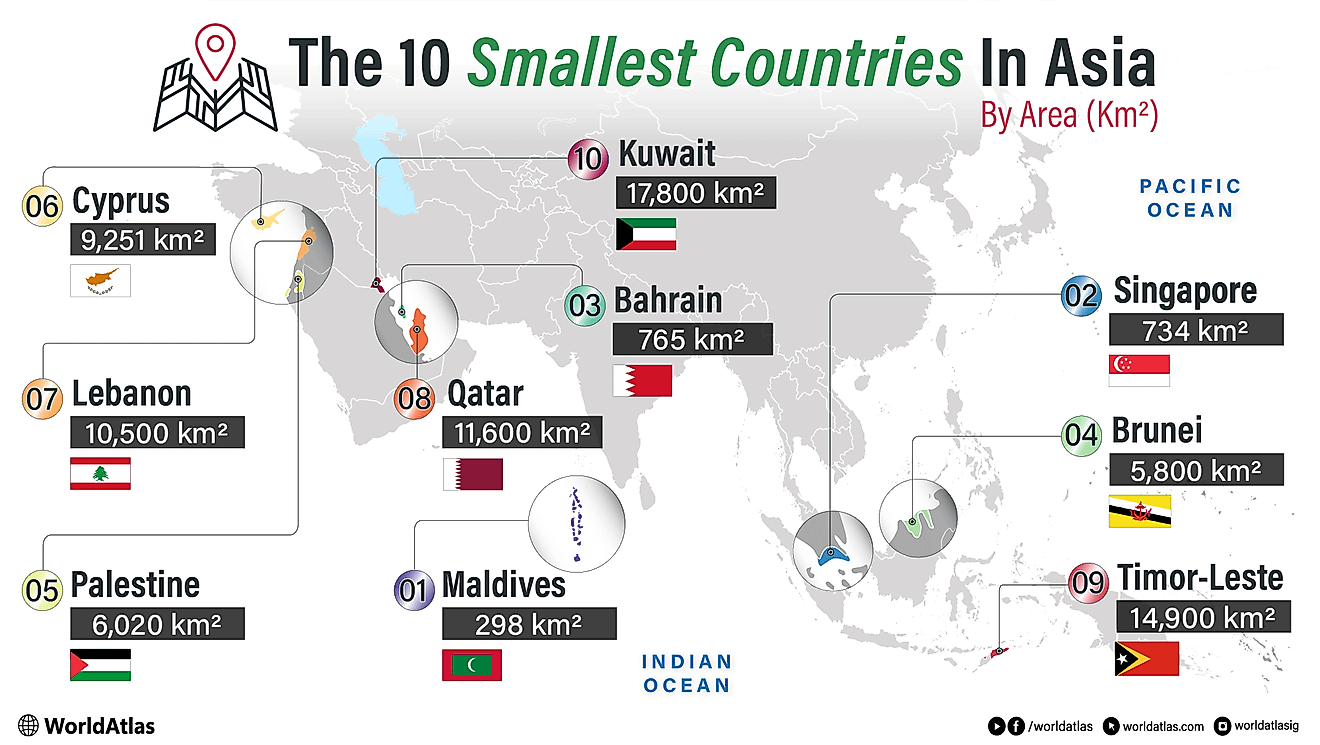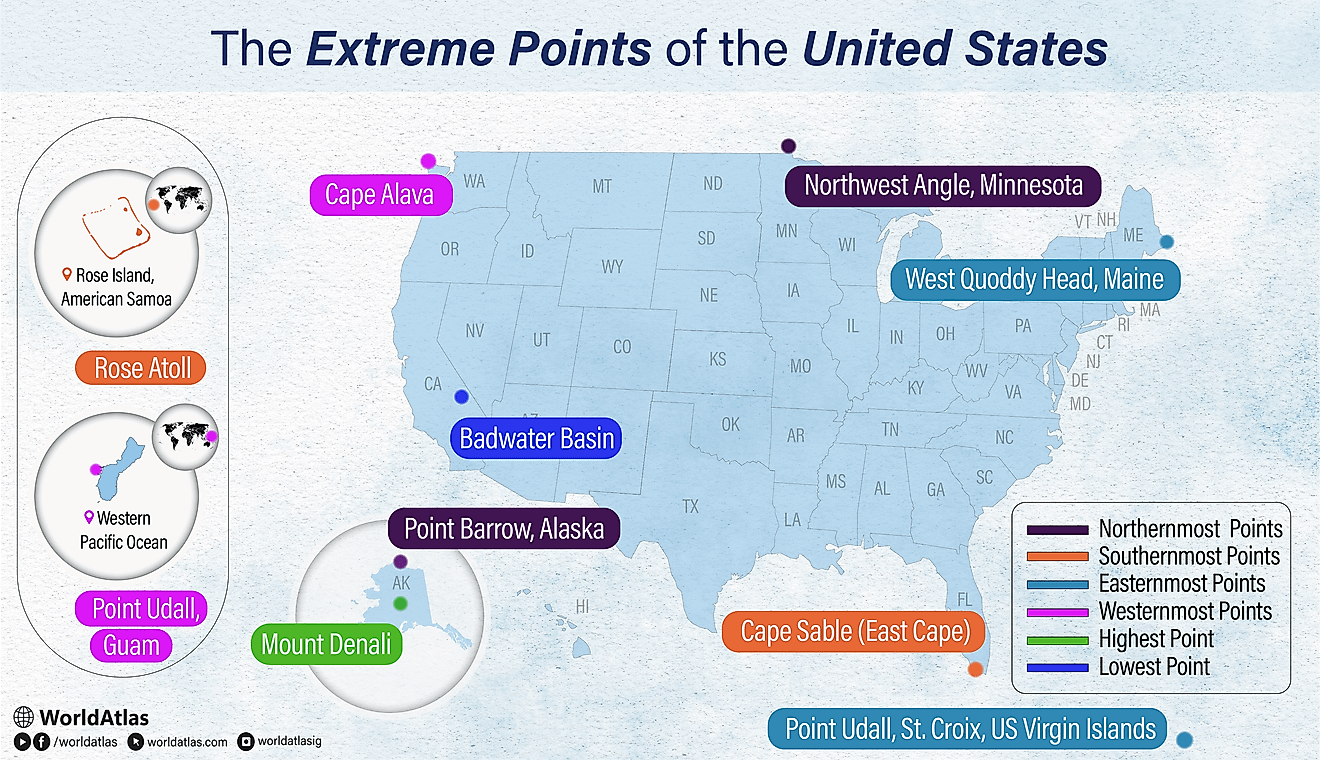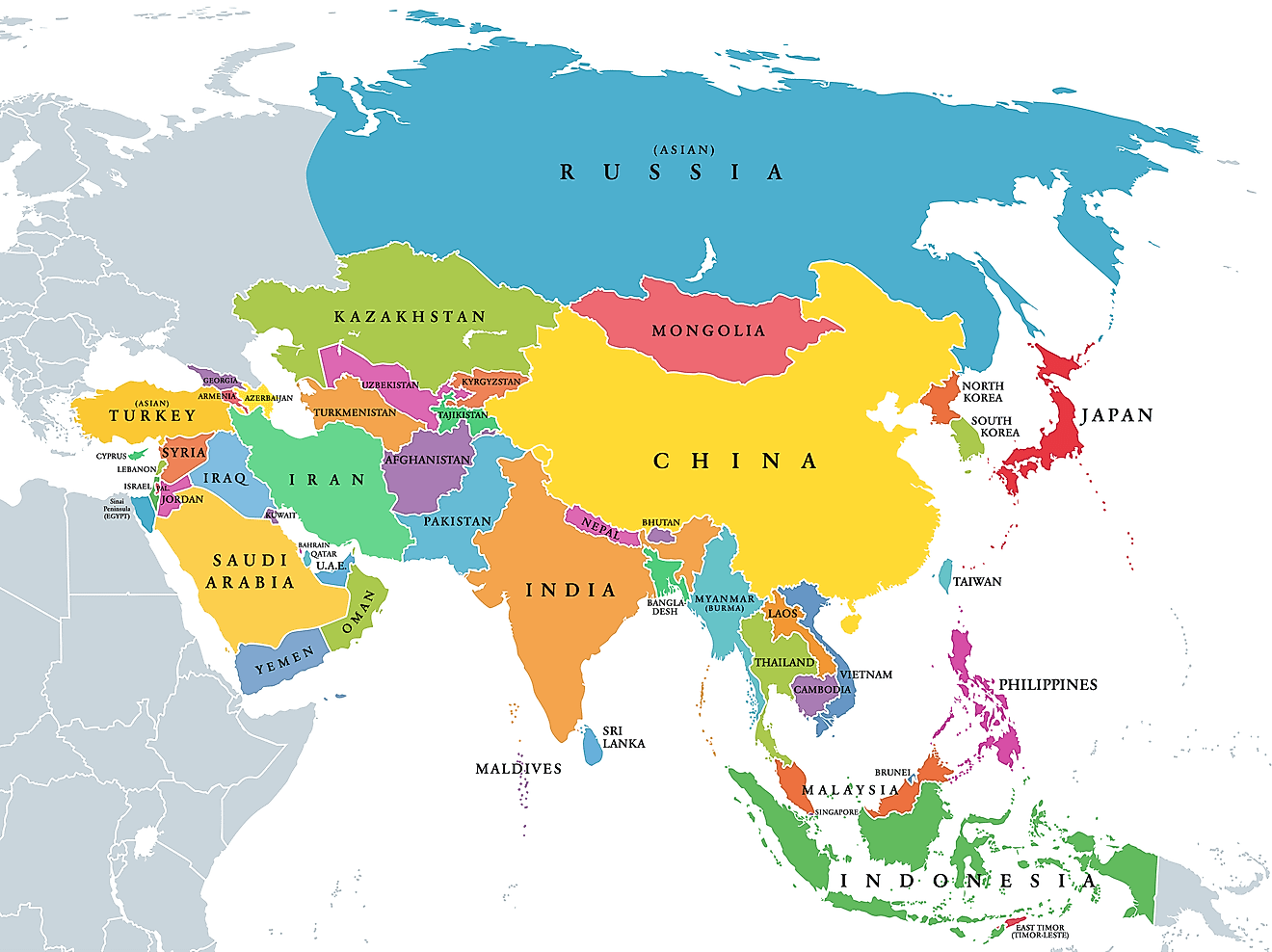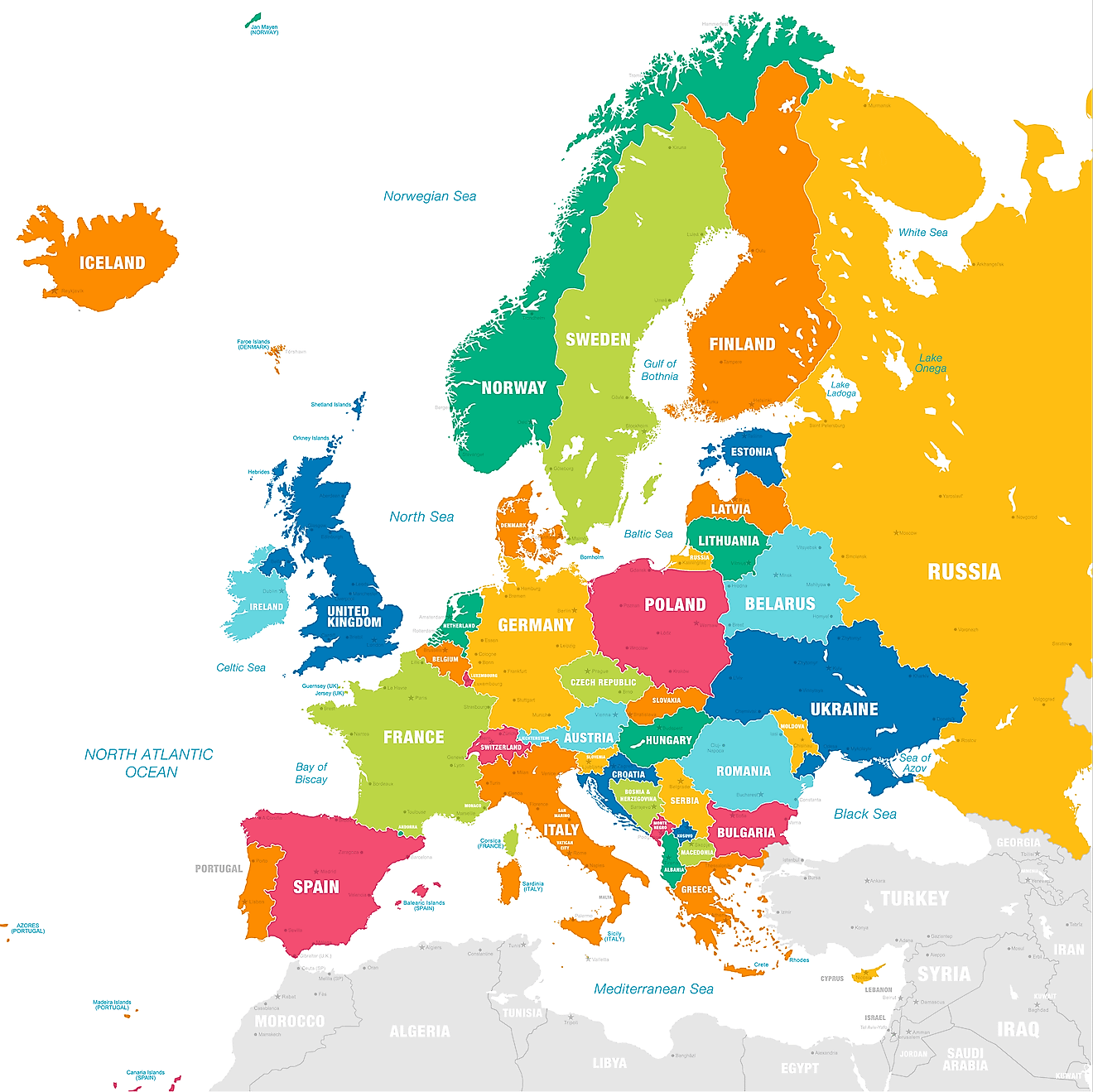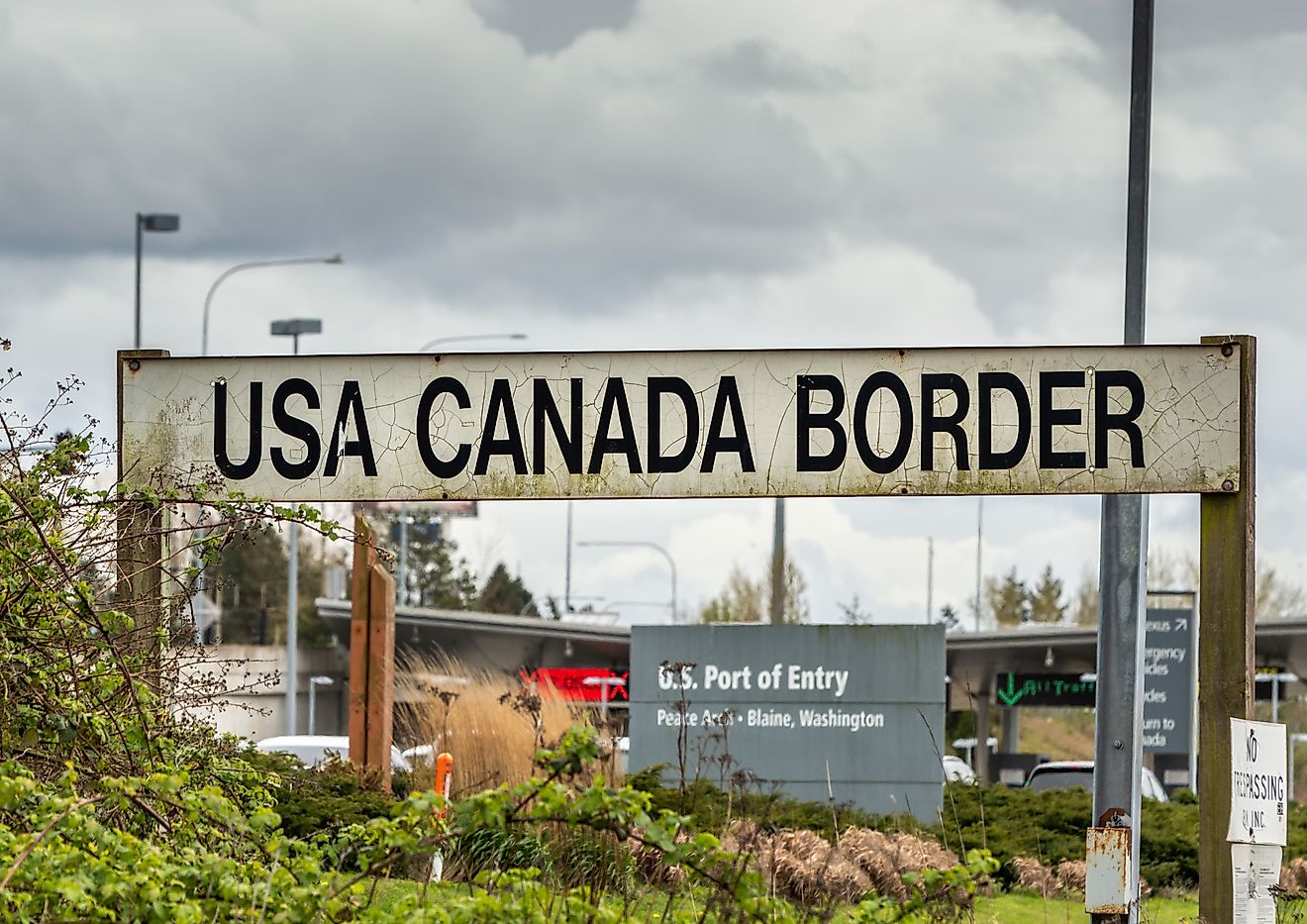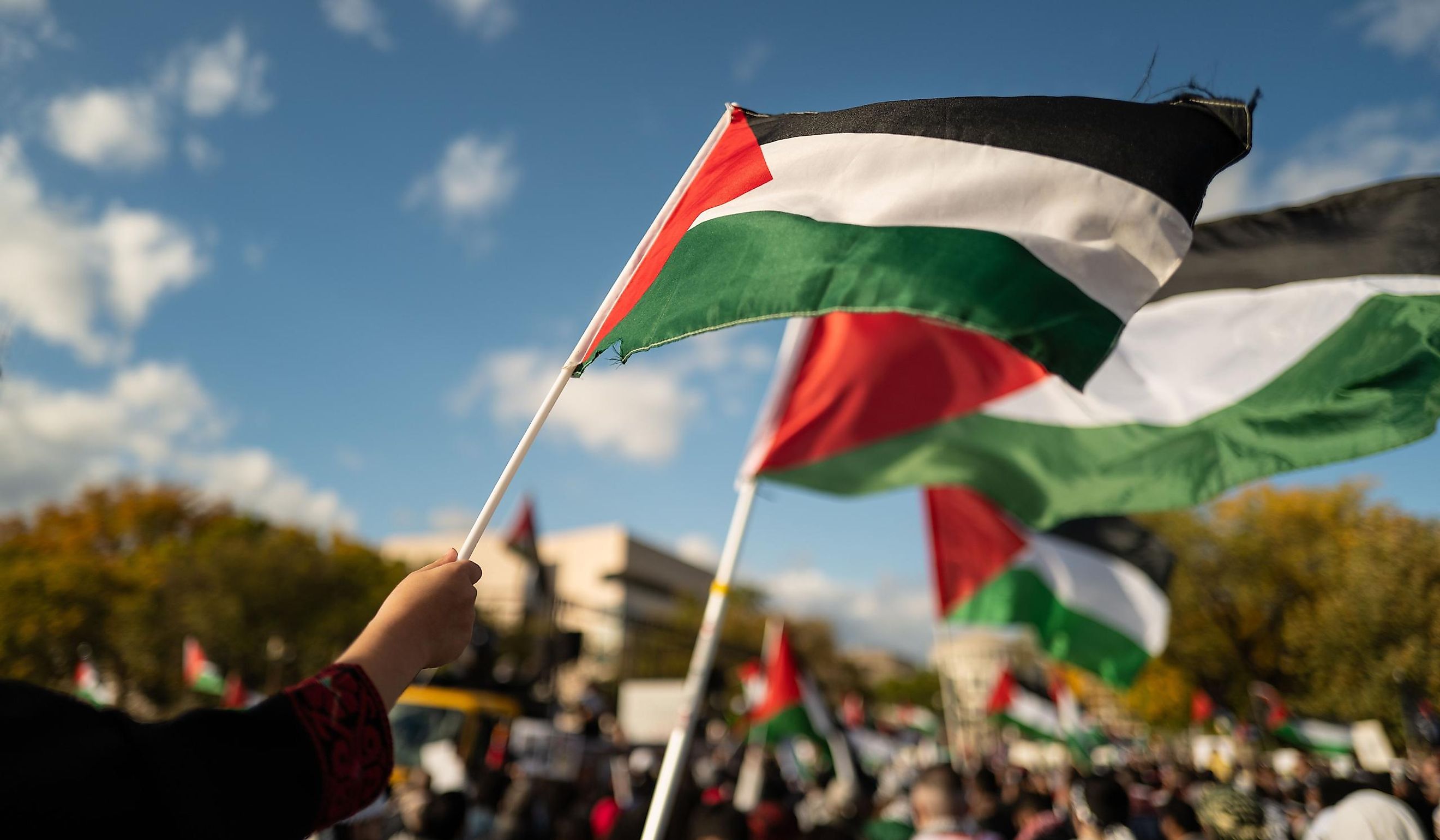
Is Palestine A Country?
Is Palestine truly a country? This question lies at the heart of a contentious global debate, intertwining history, politics, and international law. According to the United Nations (UN), Palestine is a non-member observer state, meaning that it is recognized as a state and can participate in sessions and General Assembly activities. However, here at WorldAtlas.com we state that Palestine is a country.
Palestine also has permanent offices in the UN headquarters. Vatican City is also a non-member observer state. In order to become a permanent UN Member, Palestine would need a recommendation from the UN Security Council, which they have not yet obtained. Contrarily, a non-member observer state status can be obtained by a General Assembly majority vote, which Palestine received. With this status definition from the UN in mind, as of November 2023, there are still 55 countries that do not recognize Palestine as its own sovereign country. To better understand this worldwide division regarding Palestine’s status, it is necessary to dive into the complex context and history that surrounds it.
Table of Contents
| Section | Summary |
|---|---|
| Early History | Earliest inhabiting groups, history of reigning empires |
| 20th and 21st Century Palestine | Fall of the Ottoman Empire, British rule, failed UN proposition |
| Palestine's Conflicting Country Status | The United Nation's definition, countries that do not recognize Palestine's country status |
| The Palestinian Authority Passport | Palestinian passport holders, passport strength |
| Final Thoughts | Conflict continues, and uncertainty persists |
Early History
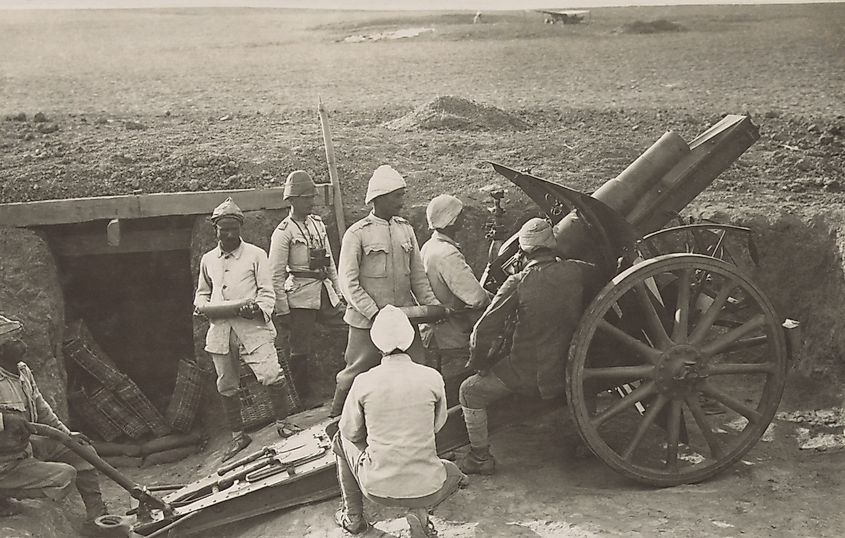
People have inhabited the region of Palestine for millennia. The Canaanites, Israelites, and Philistines, for example, were some of the earliest groups to reside in the land. Many empires came and went over the ancient years, conquering the territory. The Assyrians conquered the territory in the 8th century BCE, followed by the Babylonians in 601 BCE, the Persians in 539 BCE, the Greeks in the 4th century BCE, and the Romans in 63 BCE. During the 4th Century CE, with the transition of the Roman Empire to Christianity, Palestine became a hub for Christian scholars and pilgrims. Hundreds of years later, however, in the 7th century, various Muslim dynasties conquered the region, whose rule would last largely uninterrupted until the Ottoman Empire came and took power in the 16th century, whose rule lasted until around the 20th century when conflict broke out.
20th and 21st Century Palestine
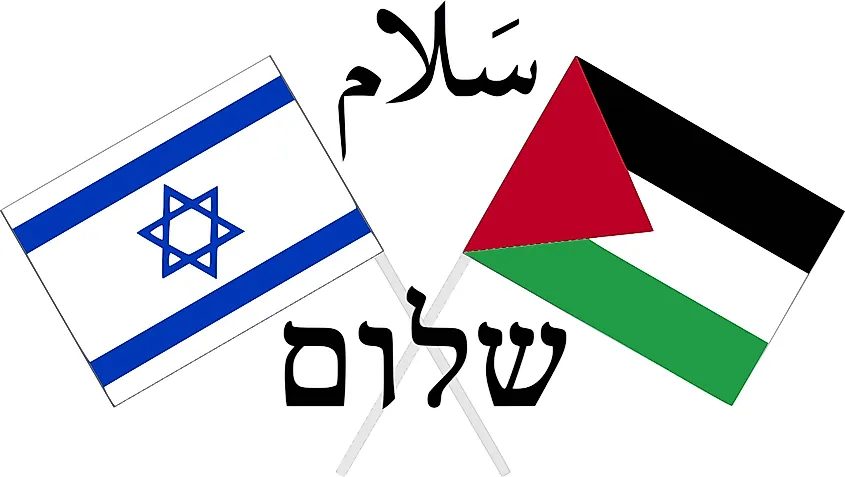
In 1918, British forces took control of Palestine, causing the Ottoman Empire’s reign in the region to end. One year earlier, the British had made a public statement known as the Balfour Declaration, supporting the creation of a “national home for Jewish People” in Palestine. Palestine experienced a large-scale immigration of Jewish people from 1922 through 1947, largely due to Nazi persecution in the 1930s. Following this mass immigration, the Arab population pushed for independence, leading to conflict and violence from both the Jewish and Arab groups. Unable to solve the conflict, the British called for assistance from the United Nations in 1947. The UN proposed that the Palestine State be divided into two independent states-- one Arab and one Jewish, with Jerusalem administered internationally since it had significance to Jews, Arabs, and Christians alike. Jewish leaders accepted the proposition, as they felt that it gave them sufficient recognition as a state and would give them more international legitimacy. The Arab leaders rejected the proposition, as they felt that proposition allocated a significant part of the land to the Jews, which would cause many Arabs to become displaced. Conflict broke out. Israel became an independent state in 1948, and over 700,000 Palestinians were displaced. Jordan and Egypt gained administration rights over the Palestine Territory until 1967.
In 1967, war broke out again, known as The Six-Day War, following tensions between Israel and its Arab neighbors: Jordan, Egypt, and Syria. Following a surprise airstrike inflicted by Israel on Egypt, Israel captured multiple Arab territories, including The Gaza Strip, the West Bank, the Old City of Jerusalem, the Golan Heights, and the Sinai Peninsula, which caused an exodus of about half a million Palestinians, further heightening tensions.
In 1993, The Palestine Liberation Organization (PLO) and the Government of Israel attempted to end the conflict through a series of agreements known as the Oslo Accords. In the first set of agreements, known as Oslo I, or the Declaration of Principles on Palestinian Self-Rule, Israel agreed to recognize the PLO as Palestine's official representatives, while the PLO denounced terrorism and acknowledged Israel's right to exist peacefully. Both parties agreed to the establishment of the Palestinian Authority, stating that it could assume government responsibilities over the course of the next five years in the Gaza Strip and West Bank. In 1994, Israel began the first stages of removing Israeli security forces from the territories of Gaza and Jericho, as part of the agreement. The two sides later arranged the Oslo II Accords in 1995, which were much more extensive than Oslo I and further expanded Palestinian self-rule and government.
However, in the years shortly after Oslo II, conflict, reignited by extremists, caused strains between the two sides, eventually resulting in the cancellation of the accords in the beginning of the 21st century. In 2012, the United Nations granted Palestine the right to be a non-member observer state. Conflict and disagreement continue in the present and lare up periodically, and Hamas’s recent attack on October 7th, 2023, has sparked renewed conflict.
Palestine's Conflicting Country Status
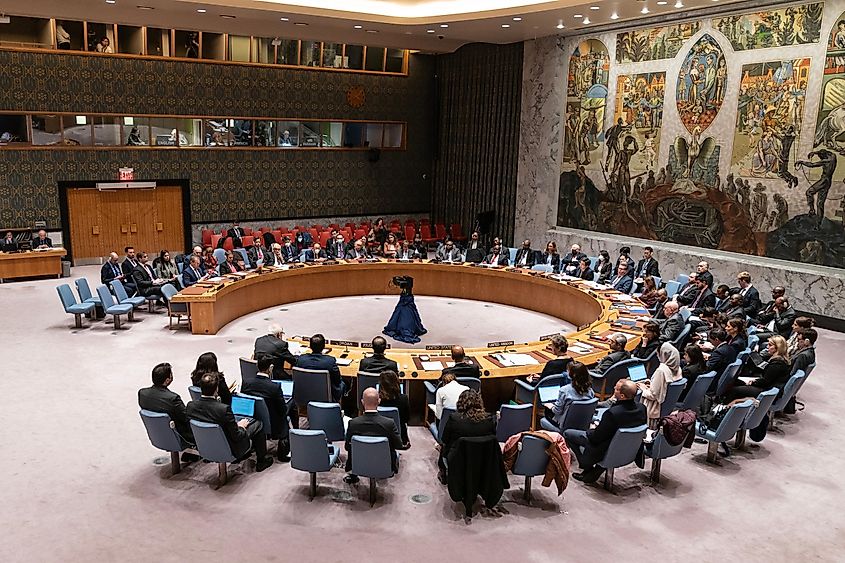
On November 15th, 1988, Palestine declared itself a country. Since then, the United Nations members have had mixed opinions regarding the validity of this declaration. The United Nations, by a majority vote, declared Palestine to be a non-member observer state on November 29th, 2012. As of November 2023, 138 of the 193 countries in the UN (72%) recognize Palestine as an independent, established country, most of these being in South America, Asia, and Africa. Comparatively, 163 of 193 UN members have recognized Israel as a country.
Many members who do not yet recognize Palestine as a country express that they want to see Palestine and Israel negotiate peace first but that they support self-determination. These are a list of countries that do not recognize the State of Palestine as a country: Andorra, Armenia, Australia, Austria, Bahamas, Barbados, Belgium, Cameroon, Canada, Croatia, Denmark, Eritrea, Estonia, Federated States of Micronesia, Fiji, Finland, France, Germany, Greece, Ireland, Israel, Italy, Jamaica, Japan, Kiribati, Latvia, Liechtenstein, Lithuania, Luxembourg, Marshall Islands, Mexico, Moldova, Monaco, Myanmar, Nauru, Netherlands, New Zealand, North Macedonia, Norway, Palau, Panama, Portugal, Samoa, San Marino, Singapore, Slovenia, Solomon Islands, South Korea, Spain, Switzerland, Tonga, Trinidad and Tobago, Tuvalu, United Kingdom, United States.
The Palestinian Authority Passport
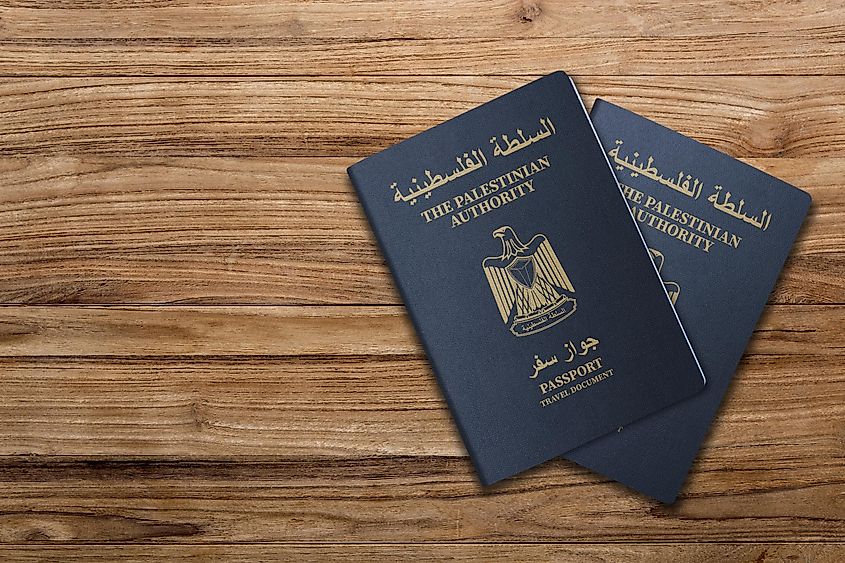
The Palestine Authority has been issuing the Palestinian Authority Passport to residents of Palestine since 1995. Anyone who was born in Palestine or who has a parent who is a Palestinian citizen can apply. Some countries, such as the United States, recognize the Palestinian Authority Passport as a legitimate travel document but do not connect the travel document with citizenship since they reject its country status. The Palestinian Authority Passport is one of the least powerful passports in the world. As of April 2024, Passport holders can currently only travel to 13 countries completely visa-free. These countries include Bolivia, Ecuador, South Africa, Jordan, and Malaysia.
Final Thoughts
With conflict in both Palestine and Israel at an all-time high, it is difficult to predict what the future holds for Palestine. Although nearly a century has passed since Arab Palestinians began pushing for independence, a resolution that pleases both Palestine and Israel remains void. The question of Palestine's status as a country is likely to remain a contentious issue, subject to ongoing negotiation, diplomacy, and potential shifts in regional dynamics.
